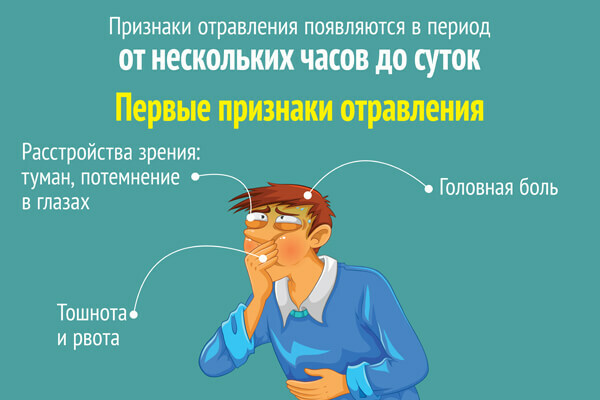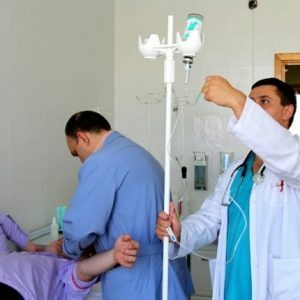Transient ischemic attack: symptoms, treatment and prevention
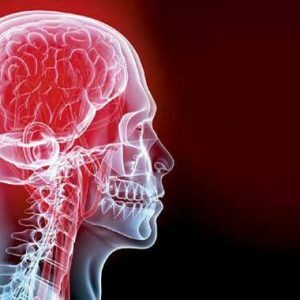
Transient ischemic attack is a transient episode of central nervous system dysfunction caused by impaired blood flow to certain areas of the brain / spinal cord or retina without signs of an acute infarction. Most often, transient ischemic attack is diagnosed in elderly people.
This condition increases the risk of developing ischemic stroke - for example, 10% of patients develop a stroke in the first 2 days after a transient ischemic attack, in 10% of patients - three months after the attack, and 20% - during the year.That is why the condition in question is determined by doctors, as urgent, requiring emergency medical care.And, the earlier this help will be rendered, the more chances for complete recovery and normal quality of life for the patient will be in the future.
Table of contents: Reasons for development of transient ischemic attack Classification of transient ischemic attack Symptoms of transient ischemic attack Diagnostic measures General principles of treatment of transient ischemic attacks Prevention of transient ischemic attacksReasons for development of transient ischemic attack
Transient ischemic attack is not an independent disease,Its origin is facilitated by the pathology of the blood vessels and the blood coagulation system,The notes of the heart and other organs / systems. Doctors distinguish several pathological conditions, on the background of which most often the condition develops:
- diabetes mellitus;
- atherosclerosis of cerebral vessels;
- coarctation of the aorta;
- osteochondrosis of the cervical spine;
- arterial hypertension;
- systemic vascular disease;
- ischemic heart disease;Atrial fibrillation;
- atrial fibrillation;
- hypoplasia of cerebral vessels;
- dilated cardiomyopathy;
- pathological tortuosity of cerebral vessels;
- antiphospholipid syndrome.
In addition, the risk factors for transient ischemic attack include:
- installed cardiac valves;
- alcohol abuse;
- smoking;
- is a sedentary lifestyle.
Note: the higher the risk of development of the considered condition, the more provoking factors there are for one particular person.For example, the patient is diagnosed with diabetes mellitus, he leads a sedentary lifestyle and smokes - the risk of transient ischemic attack almost doubles.
 The mechanism of development of the phenomenon under consideration consists in a reversible reduction in the blood supply to a particular zone of the central nervous system or the retina of the eye.That is, in a certain area of the vessel formed a thrombus, which prevents the flow of blood.Due to lack of blood in the distal parts of the brain, there is an acute lack of oxygen, and violations of their functions begin.
The mechanism of development of the phenomenon under consideration consists in a reversible reduction in the blood supply to a particular zone of the central nervous system or the retina of the eye.That is, in a certain area of the vessel formed a thrombus, which prevents the flow of blood.Due to lack of blood in the distal parts of the brain, there is an acute lack of oxygen, and violations of their functions begin.
Note: with transient ischemic attack, the flow of blood to the brain tissue does not stop completely, but is simply limited.If the blood ceases to flow into the brain tissue, then a cerebral infarction or ischemic stroke will develop.
From myocardial infarction, the condition under consideration has an important difference: it refers to reversible processes: after 1-3-5 hours or several days, the blood flow in the ischemic area is restored and the symptoms of the disease regress( disappear).
Classification of transient ischemic attack
The classification of the condition in question directly depends on the location of the thrombus. Following the international classification of diseases, the transient ischemic attack can be one of the following:
- carotid artery syndrome;
- , unspecified transient ischemic attack;
- is a syndrome of the vertebrobasilar system;
- bilateral multiple symptoms of the cerebral arteries;
- transient global amnesia;
- transient blindness.
Symptoms of transient ischemic attack
Clinical manifestations of this state are quite variable.
With the syndrome of the vertebrobasilar artery, the patient will complain about:
- intense tinnitus;
- a flash of light, which refers to disturbances from the organ of vision;
- nausea, vomiting and intense hiccough;
- headaches with localization in the occipital part of the head;
- marked dizziness;
- movement coordination disorder;
- fluctuations in blood pressure;
- transient amnesia( memory impairment).
Patients in this condition are characterized by pale skin, they have involuntary oscillatory movements of the eyeballs in the horizontal direction, they are unable to touch the tip of the nose with their fingers( miss) with their eyes closed.
Symptoms of carotid artery syndrome:
- abrupt decrease or total absence of vision on one eye, which always begins suddenly;
- marked weakness, numbness and decreased sensitivity of the limbs from the side opposite to the affected organ of vision;
- short-term and non-expressed speech disorder;
- convulsions in the limbs of a short-term nature.
- seizures;
- transient speech disorders;
- loss of vision on the side of the affected vessel;
- violation of limb movements from the opposite side of the affected vessel;
- is a sensitive disorder.
- a clinical blood test;
- study of the coagulation system( coagulogram);
- electrocardiography.
-
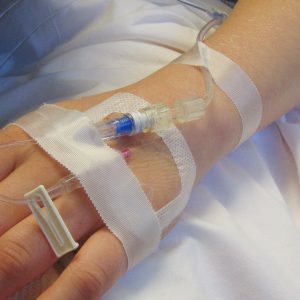 infusion therapy - intravenously drip the patient with Reopoliglyukin or Pentoxifylline;
infusion therapy - intravenously drip the patient with Reopoliglyukin or Pentoxifylline; - antiplatelet agents - acetylsalicylic acid alone or in combination with clopidogrel;
- anticoagulants - are prescribed only with constant monitoring of blood counts: Clexane or Fraksiparin;
- neuroprotectors intravenously drip - Magnesium sulfate, Ceraxon and Actovegin;
- nootropic drugs intravenously drip - Cerebrolysin or Pyracetam;
- antioxidants are intravenously drip-Mexidol or Phytophlavin;
- antihypertensives - Lopril, Amlodipine;
- lipid-lowering drugs( statins) - Atoris, Vabadin or Vazilip.
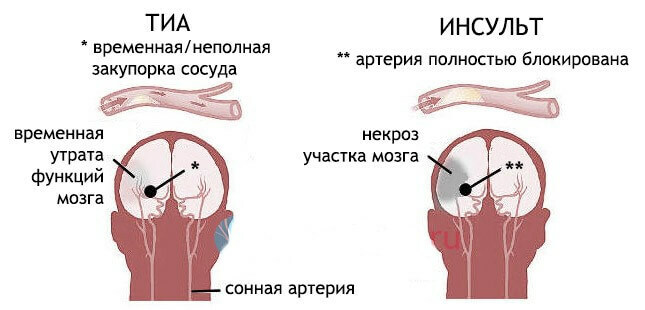
If the transient ischemic attack takes place in the cerebral artery region, this will manifest itself with the following symptoms:
The pathologies of the cervical spine and the transient ischemic attack that appeared on this background cause attacks of sudden muscle weakness - the patient suddenly begins to fall, becomes immobilized, but is in full consciousness.Literally after a few minutes the patient's condition is restored.
Diagnostic measures
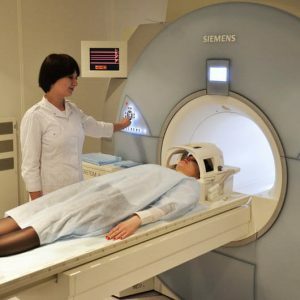 If a person has symptoms that are characteristic of a transient ischemic attack, then he should be immediately sent to a medical institution.The treatment of this pathology is performed by neurologists .Doctors conduct an emergency magnetic resonance imaging of the brain, which will allow them to determine the nature of pathological changes and to conduct differential diagnosis of the condition in question.
If a person has symptoms that are characteristic of a transient ischemic attack, then he should be immediately sent to a medical institution.The treatment of this pathology is performed by neurologists .Doctors conduct an emergency magnetic resonance imaging of the brain, which will allow them to determine the nature of pathological changes and to conduct differential diagnosis of the condition in question.
In addition, the patient can be carried out and additional examination - for example, ultrasound examination of the vessels of the head and neck, CT angiography, rheoencephalography.These methods enable the specialist to determine the exact localization of the violation of the patency of the vessel.
The patient with the symptoms characteristic of the condition in question is prescribed:
Note: physicians should differentiate the transient ischemic attack from other diseases with which the symptoms are similar.These diseases include multiple sclerosis, acute labyrinthitis, epileptic seizures, myasthenic crises, panic attack, metabolic disorders.
General principles of treatment of transient ischemic attacks
Treatment of the condition in question should be started as early as possible, because this is the guarantor of recovery. The patient is prescribed intensive care, which includes:
Note: is strictly prohibited for patients with transient ischemic attack to sharply lower blood pressure, it needs to be maintained at a slightly elevated level - within 160-180 / 90-100 mm of Hg pillar.
If there are indications, after a complete examination and consultation with a vascular surgeon, the patient may be assigned surgery - carotid endarterectomy, carotid angioplasty with stenting.
Prevention of transient ischemic attacks
To prevent the development of the condition under consideration, it is necessary to follow the recommendations of specialists:
- To conduct adequate therapy of arterial hypertension - for example, the blood pressure level should be maintained at 120_80 mm Hg pillar, hypotensive drugs should be taken regularly,Requires a correction of lifestyle and diet.
- Follow and maintain normal blood cholesterol levels.This can be done by normalizing nutrition, leading an active lifestyle and taking lipid-lowering medications.
- Refuse bad habits - sharply limit, and in the optimal version - completely refuse, smoking, in moderate quantities to consume alcoholic beverages.
- Regularly take medications that are able to prevent thrombosis - for example, Aspirin at 100 mg per day.But this can be done only after consulting with specialists - the drugs have certain contraindications.
- Timely and fully treat diseases that can lead to the development of a transient ischemic attack.
If the patient quickly responds to the development of the condition in question and receives emergency medical care, his recovery will soon come, a person will be able to return to a full life.Otherwise, the risk of a rapid development of a stroke or a cerebral infarction will lead to the death of the patient.Even if the symptoms were short-lived and mild, it will be necessary to visit a neurologist in the near future and get appointments regarding the normalization of the state of health.
Tsygankova Yana Alexandrovna, medical reviewer, therapist of the highest qualification category


